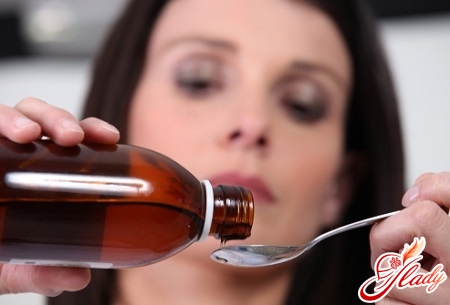
Many people around the world have already fallen into"paws" of alcohol addiction, from which they suffer themselves and make their loved ones suffer. It is alcohol addiction that often leads to various quarrels in families and divorces as a consequence. Alcoholism is a truly terrible phenomenon, since addiction pushes a person to terrible things, forcing him to put first not moral or material values, family, children, work, but alcohol. For most alcoholics, there is only one problem: what to do to get uninterrupted access to the "bottle". Ultimately, such behavior makes a person suffering from alcoholism sink lower and lower. It is simply impossible to describe what stress a family experiences in which there is an alcoholic.
Alcoholism - is it a death sentence or not?
Many people believe that this problem issimply harmful habitual, but leading psychologists and narcologists consider pathological craving for alcohol a disease. Currently, the number of people suffering from alcoholism is increasing every day, and both smart, experienced adults and teenagers who want to look more mature become victims of this "bad habit". According to psychologists, the increase in the number of people addicted to alcohol is associated with the specifics of modern life, because people seek relief from stress in alcohol, eventually getting used to this drink and its effects, starting to think that life will be terrible without such doping.
How does alcoholism work?
The problem of alcoholism is not only psychological,but also medical, so at the moment there are a number of drugs that are widely used to treat alcohol addiction. The effect of drugs for alcohol addiction can be different, and it is on the basis of the method of action that these medical products can be divided into the following groups:
- Medicines designed to reduce cravings for alcohol;
- Medications that cause alcohol rejection;
- Medicines that promote the neutralization of alcohol and the excretion of its decay products;
- Medications from hangover syndrome.
The main thing to remember when choosingmedicine for the treatment of alcohol addiction, is that some drugs are compatible with alcohol, others are strictly prohibited to use with it. That is, in one case, treatment with drugs can only be carried out with the consent of the patient, in another case, you can use pills without the knowledge of the alcoholic. Basically, alcoholics do not believe that they are addicted and cannot cope on their own, refusing the help of psychologists and narcologists, so the relatives of such a person have to act without his knowledge.
Drugs to reduce cravings for alcohol
In medications for alcohol addiction thistype are needed by those people who themselves have come to the conclusion that they are addicted and sick, therefore they need drug treatment. Drugs that reduce cravings for alcohol help to bring a person out of a state of "binge drinking", and also reduce the psychological burden when giving up alcohol. When taking drugs of this type, the patient experiences less stress due to the absence of a bottle, but, ultimately, these drugs are only an aid to a person's willpower. Medicines of this type include Litonin, Biotredin, Glycine and some other drugs. The action of these drugs is aimed at reducing unpleasant withdrawal symptoms that are observed after a sudden cessation of alcohol consumption. The composition of such drugs includes components aimed at normalizing metabolism, a complex of vitamins, and in addition, substances that have a sedative effect on the central nervous system, which ultimately leads to the fact that a person does not feel so much all the hardships of deprivation of the habitual dose of alcohol. Medicines that reduce cravings for alcohol are ineffective in cases where a person does not want to undergo treatment and give up their addiction.
Drugs that cause a persistent rejection of alcohol
The second type of drugs includes those thatare used to develop a persistent aversion to alcohol in the patient. Medicines of this type are potent and have a rather aggressive effect. If a person who takes such medicines, consciously or not, then drinks even a small dose of alcohol, a violent reaction will occur in his body. As a rule, with the combined use of alcohol and drugs that cause aversion to alcohol, an alcoholic will experience clear symptoms of alcohol poisoning. Most often, confusion, severe vomiting, rashes, abdominal pain, diarrhea, thirst and other unpleasant sensations appear. Medicines of this type include Esteral, Furazolidone, Teturam, Disulfide, Alkofobin, Antabuse, Refezal, Tetradin and so on. All these drugs are strong medications, so they are prescribed as a last resort when other means have not brought the desired result. These medications, when used for a long time, cause the body to develop an intolerance to alcohol, so a person develops a persistent aversion to the smell and taste of alcohol. With prolonged use of such drugs, patients develop an allergy to alcohol and they can no longer physically consume it. Drugs that cause an aversion to alcohol are sometimes the only way to force a person who does not admit their addiction to give up drinking alcohol, so these drugs are usually mixed into food or drinks by the patient's relatives.
Drugs that neutralize the effects of alcohol
There are a number of drugs thatare the strongest detoxifiers. These drugs are designed to help a person suffering from alcoholism recover from a prolonged binge. Detoxifiers not only help remove existing alcohol from the body, but also allow you to quickly remove alcohol breakdown products and toxins accumulated as a result of long-term abuse. In fact, drugs of this type are additional, not primary, that is, they are used to help a person recover faster from long-term alcohol abuse. It is worth noting that self-administration of detoxifying drugs is not always possible at home and these drugs are mainly widely used in specialized clinics and institutions. Many may think that these drugs allow you to quickly sober up a drunk person, but this is not so, in fact, detoxification occurs quite slowly, but at the same time all the toxins and slags that slow down metabolism and impair the functioning of all body systems are removed. Medicines that have a detoxifying effect include Matadoxil and Limontar.
Medications that relieve the symptoms of hangover syndrome
Medicines that fightsymptoms of a hangover, do not treat the main problem, that is, alcoholism, and in some cases even make things worse, since addicts stop feeling discomfort from drinking alcohol, which allows them to feel the need to get to the booze faster. There are many drugs of this type, and basically they allow you to get rid of the symptoms of alcohol poisoning and its decay products. Such drugs include Allochol, activated carbon, lignin-based sorbents, Picamilon, magnesia, Mexidol, and so on. These drugs are effective in treating poisoning, but, unfortunately, it is impossible to cure alcoholism with them alone. Such drugs are good for people who have a family member suffering from alcoholism, since there are situations when a person urgently needs immediate medical care due to alcohol poisoning. In addition, such pills, in combination with sedatives, can be an excellent help for a person who wants to give up alcohol on their own. Of course, in this case, you will need willpower and support from loved ones, but, in general, it is possible. In specialized institutions, such drugs are additional means in the fight against alcohol addiction.
Features of treatment of alcoholism
Alcoholism is a disease thataffects not only the human body, causing withdrawal symptoms when refusing to drink alcohol, but also psychological dependence, which is even worse. In order to rid the patient of the craving for alcohol, it is necessary first of all to change his distorted worldview, which is simply impossible to do without his assistance. The path to recovery always begins with the patient's awareness of the existing problem. In order to really help a loved one get out of the bondage of alcoholism, it is necessary to convince him to turn to specialists, since only in specialized institutions can a person receive qualified help from a psychologist, narcologist and other necessary specialists. In order to completely cure a person, specialized institutions prescribe a number of drugs at once that have a comprehensive effect. The problem of treating alcoholism is currently so acute due to the fact that the patient needs to be treated comprehensively: both physically and psychologically. The outcome of this case depends not only on medical means, but also on the desire of the person with the addiction, which is why at the moment there is no pill that can completely rid a person of alcoholism.









